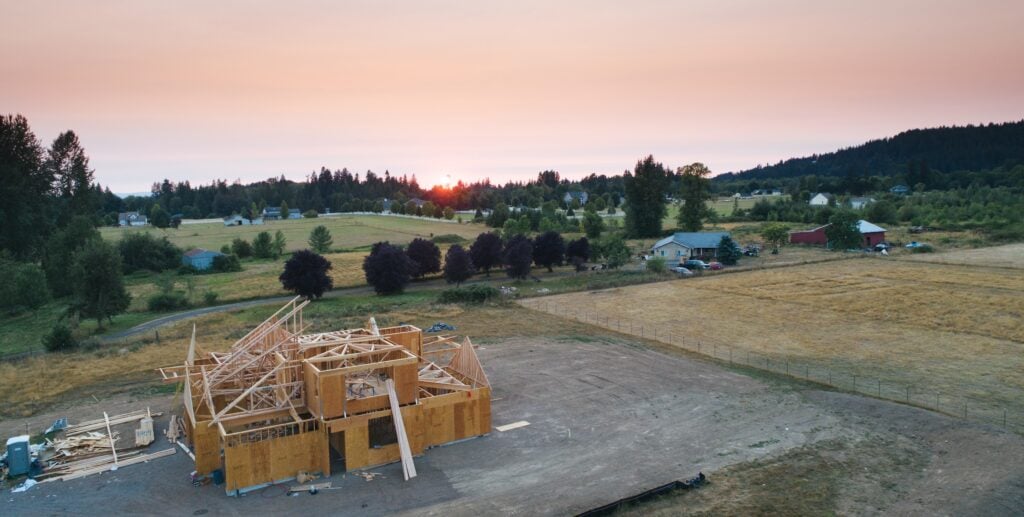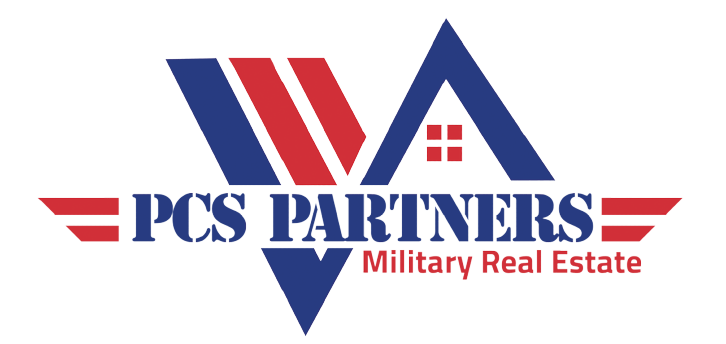Building a custom home is a dream many homeowners share. Being able to design your home exactly according to your preferences is an exciting but time-consuming endeavor.
So, how long does it take to build a house? It can take anywhere from a year to three years to build a custom home. Why is it so difficult to reduce the estimate of average time to completion? The average amount of time it takes to build a house can vary widely due to the scope of the project, weather-related delays, and readily available supplies and labor. Obtaining permits and completing inspections can also increase this timeline if those processes are difficult to schedule.
Average time taken to build a house
The time period for building a house is affected by the type of house you choose. Custom builds require more build time because they are designed and manufactured to your exact specifications. On the other hand, a non-custom build is usually faster because it uses pre-designed plans and standard layouts. On average, it takes about eight months to build a single family home, according to the Census Bureau’s 2019 Survey of Construction (SOC).
How long does it take to build each type of house
The amount of time it takes to build a house depends on a number of factors, including the type of house, the size, the complexity of the design, the availability of labor and materials, and the efficiency of the construction process.
- Prefabricated or Modular Homes: Workers build these homes off-site in a factory and then transport the home to the construction site for assembly. Typically, you can build a prefabricated or modular home in less time than with traditional construction methods. On-site assembly can take anywhere from a few days to a few weeks, depending on the complexity and size of the home.
- Custom or Traditional Stick-Built Homes: A construction team builds this style of house on site using traditional construction methods, where they assemble the structure piece by piece. It usually takes longer to build a custom or stick-built house than a prefabricated house. The construction process can take several months to a year, depending on the size and complexity of the house, weather conditions, and the availability of labor and materials.
- Production or Tract Home: Large-scale builders construct these homes using standardized designs and materials, often in a planned community or subdivision. The production of tract homes is generally efficient, and the construction process is relatively quick. Depending on the size and features of the house, the construction timeline can range from a few months to six months.
Are custom builds slow? Why is it like this?
Custom-built homes often take longer than purchasing a pre-designed home in a planned community because of the additional planning and customization required. The scope of the project and the unique features, fixtures and finishes affect how long it takes to complete. Because custom homes are built according to the client’s specifications, you may need additional time to finalize plans and design elements. It is common to see delays during the manufacturing process due to design changes or unforeseen problems.
non-custom builds can be faster than custom
If you’re looking to build a home that falls within the standard range of production homes, you can expect the construction process to move much faster. These types of homes often have pre-determined plans, which limits your customization. Most of the homes are still customizable (tile, flooring, and paint color), but planning is easier because you work within the given limits.
What you need to know before you start building that house
Before starting your construction journey, you need to consider several factors. The first thing to decide is what type of house you want to build. Will it be a custom or production house? You must also incorporate the unique needs of your family into the design and layout of your home.
Another important detail is the type of house you will be building. The terrain and size of the lot can directly affect construction time, cost, and even the design and layout of your home. Securing financing and finding the right general contractor for the job must also be taken seriously. Selecting the right contractor is critical to achieving the desired results within the construction time and budget, so do your due diligence.
Main issues that may affect the timeline
Many issues can affect the timeline of building a custom home, with weather being one of the most important for affecting construction times. Various permits and authorizations, such as inspections and construction permits, can also affect how long it takes to build a home. One way to ensure a smooth timeline is through careful planning and scheduling of each step of the homebuilding process.
Time savings during the building process
To save time during the construction of your new home, you must first have a clear understanding of the next construction timeline. Be sure your desired schedule can be accommodated and employed, including extra time needed for permits, inspections or other issues.
It is also important to make sure that all the materials needed for your home have already been obtained, ensuring that the construction period can continue without interruption or delay.
Permits and Authorizations: What You Need to Know
To build a new dream home, you must obtain permits from municipal departments such as the building or zoning department. These permits and authorizations help ensure that building construction adheres to standard building codes, limiting the potential for home construction defects and related problems.
the style and scale of your new home
The style and size of your new home can significantly affect the timeline of your new home construction. Larger homes will often take longer to build than smaller homes due to the increased work required and the need to secure many more building materials.
Timeline of building a typical house
The actual construction timeline for building a typical home can vary depending on the location and complexity of the building plan. Here’s a rough construction timeline for building a typical house:
Week 1: Preparation and Planning
To begin a custom build, you must prepare the site, obtain permits, install equipment, establish a construction schedule, and plan a rigorous construction process.
Weeks 2-5: Framing and Home Foundation
Once your contractor is ready to work on the home-building project, their team will need to complete foundation and framing work, including planning the first floor and framing the walls and roof of the home. After framing, a structural inspection ensures all work is up to code.
Weeks 6-7: Mechanical Elements
It’s time to get down to the basics and install plumbing, electrical systems, ductwork, and heating and cooling systems.
Weeks 7-8: Drywall and Other Insulation
Typically, in about seven to eight weeks, you’ll install insulation to help control the temperature inside your home and drywall to seal off interior walls.
Weeks 9-11: Painting and Flooring
Get ready for the fun stuff – painting the interior and installing flooring such as tile, hardwood or carpet.
Weeks 12-13: External Elements and Finishes
Once you’ve completed a good portion of the interior work, it’s time to move out and install exterior doors and garage doors, build walkways, roofs, and gutters.
Week 14: Finishing the Interior
After you’ve completed the base of the home, there are the finishing touches, such as installing cabinetry, appliances and light fixtures.
Week 15: Finishing Your Driveway and Walkway
In about four months, the build team will have completed exterior elements such as your driveway, walkway and landscaping features.
Week 16: Final Finishing Touches and Clean Up
As the project begins to kick off, it is essential to clean up the construction site, check the construction site for any remaining issues and make sure everything is up to code.
Week 17: Landscaping and Gardening
During week 17, the builders will begin finalizing the exterior of your new home, including planting trees and shrubs.
Week 18: Inspection of the Finished Home
If all goes well, you’ll complete a final inspection by a municipal inspector to make sure everything is in order with the home. This is an important step from the point of view of security.
Week 19: Final Home Walkthrough of the property
The final home walk-through is a really exciting time in any custom build. The homeowner and builder do one final walkthrough to make sure everything is working.
Week 20: Completion of the new house construction
To wrap things up, at about week 20, the homeowner signs documents to complete the home purchase and officially take ownership.
Some final elements to consider when building your new home
Unfortunately, the costs don’t stop once you’ve built the house. You should also plan for mortgage and escrow costs in order to have a custom home built.
Cost, Mortgage and Escrow
When it comes to building a new custom home, there are a few final elements to consider to make sure you are fully prepared for the process. One of the most important things to keep in mind is the cost of the mortgage. While you may know how much you can afford to spend each month, it is essential to speak with a mortgage broker or lender before starting your construction to give you a clear idea of your budget and help avoid surprises. Using a mortgage calculator can make it easier to determine what your monthly payments will look like.
Additionally, it’s important to consider the costs of escrow – money you’ll need to set aside for expenses such as property taxes, insurance and maintenance. Create a separate account for these expenses and contribute a set amount every month to ensure that you are prepared for any unforeseen expenses that may arise.
Find an agent in minutes
Get matched with an investor-friendly agent who can help you find, analyze and close your next deal.
Note by BiggerPockets: These are the views expressed by the author and do not necessarily represent the views of BigPockets.





